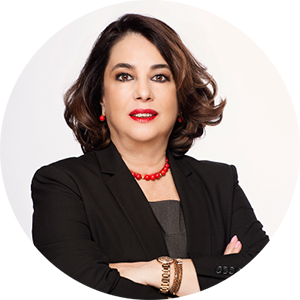This year the meeting was opened by the Executive Director of UN Women and the meeting started with songs while Secretary General was entering the Townhall.

The auditorium was full of representatives of many countries with their colorful outfits. KAGIDER (Women Entrepreneurs Association of Turkey) was at the meeting with a fairly large delegation.

The theme of this year was “push back against the push back”. In gender we have a challenge to push back for the push back. That is, we must challenge with the push back said the UN Secretary General António Guterres, who is one of the highest-ranking officials in the world that had declared himself to be feminist.
Push back is a term in aviation. For the plane to go to the runway there needs to be pushback to start the move. The move needs to start.

The central question of gender equality is a question for power according to the Secretary General. He repeated also this year that power needs to be taken – and it is usually not given.
UN Secretary General António had in his address in the same townhall meeting last year in 2018 – at the civil society meeting at CSW62 – had said that “the struggle for gender equality is a tough struggle and without the civil society leadership we would not be at this point!” “This is a question of power and we see a male dominated world as well as a male dominated culture” he continued “Power is usually not given but it can only be taken.”
The top management of the UN have 3 priorities:

Reaching parity is their first priority. He had announced his dedication for parity and that they have a road map to reach parity at the UN as an internal target.

The second priority is to eliminate sexual exploitation and abuses by the UN agents and the people outside of UN who are the partners with UN in the worldwide operations. Partners include soldiers from the host countries. The problem in peace keeping missions and refugees has a misleading balance of power for fair treatment. Power of those who are selecting are so high that the risk of harassment and corruption rises and sometimes explodes.

“The zero-tolerance policy has been policy and has been announced long ago” said the Secretary General. But, it doesn’t end naturally with an announcement. It needs to be carefully monitored with an implementation plan. Now, the implementation is being carefully monitored. Victim advocates are assigned. Training programs as well as investigations are planned and conducted. It will take time to clear the issues and to reach the objective. The objective is to be reached at the UN level as well at the level of UN Partners.

“The third priority is sexual harassment cases within the UN. We have a system where we have the cases reported. We also see that most situations are not reported. We are trying different measures and we are organizing training” said the Secretary General. There is a hotline instituted for the issue. A special investigation team is organized, and investigations are undertaken, and presentations are compiled to represent learnings to fight with the issues.

I find all these efforts in such an important organization to be very important and in fact, invaluable. It gives me an impression that many corporations can follow suit. This is not only feminist or humanist or the right approach, but it is an approach to set an example to the whole world. It must not be easy to sit in front of a large auditorium with many women from many countries facing the speaker and many other who are online to say that “we have done wrong doings in our organization and we are on the way to correct them.” This must be the transparency era. It is definitely serious step forward for the whole world.
Phumzile Mlambo-Ngcuka, the Executive Director of UN Women said that the progress is slow, which I can’t say anything, but agree.
For the recording of the conference please find the link















